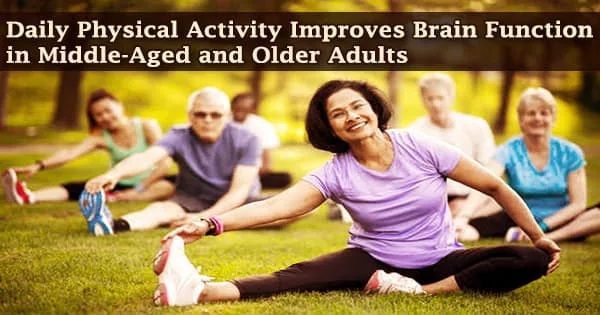Physical activity or exercise can help you stay in better shape and lower your chance of acquiring diseases including type 2 diabetes, cancer, and cardiovascular disease. Physical activity and exercise can enhance your health both now and in the future. Most significantly, regular exercise can help you live a better life.
A new study from the University of California San Diego School of Medicine adds to the growing body of evidence linking physical activity to cognitive performance, this time involving 90 middle-aged and older participants who wore accelerometers while exercising and completed mobile cognitive testing from home.
Physical activity is defined by the World Health Organization (WHO) as any physiological movement that needs energy expenditure and is performed by skeletal muscles. Physical exercise encompasses all forms of movement, whether it is done for fun, to go to and from locations, or as part of one’s job. Physical activity, both moderate and strenuous, is beneficial to one’s health.
“The future of lifestyle interventions really needs to be remote-based,” said Raeanne Moore, Ph.D., associate professor in the Department of Psychiatry at UC San Diego School of Medicine and principal investigator of the study. “The pandemic has made this especially clear.”
The study discovered that the 50 to 74-year-old participants performed better on an executive function task on days when their physical activity increased and that their cognitive performance deteriorated on days when their physical activity fell.
The findings were published on January 31, 2022, in the journal JMIR mHealth and uHealth.
Health doctors and academics recommend a minimum of 30 minutes of moderate-intensity physical exercise on most, if not all, days to maintain health and lower your risk of health problems.
The future of lifestyle interventions really needs to be remote-based. The pandemic has made this especially clear.
Raeanne Moore
Walking, cycling, wheeling, sports, active recreation, and play are all popular activities to be active, and they may be done by anyone of any ability level.
“It was a very linear relationship,” Moore said. “We hypothesized that we would find this, but we couldn’t be sure because we weren’t telling people to increase their physical activity. They just did what they do every day.”
First author Zvinka Zlatar, PhD, a clinical psychologist at UC San Diego School of Medicine, added: “Future interventions, in which we ask people to increase their physical activity, will help us determine if daily changes in physical activity lead to daily gains in cognition measured remotely or vice versa.”
Physical activity has been shown to aid in the prevention and management of non-communicable diseases such as heart disease, stroke, diabetes, and a variety of malignancies. It also aids in the prevention of hypertension, the maintenance of healthy body weight, and the enhancement of mental health, quality of life, and overall well-being.
When co-morbidities like HIV status, age, sex, education, and race/ethnicity were taken into account, the link between physical exercise and cognition was maintained. However, it only applied to people who are reliant and rely on others to conduct daily duties such as managing household operations or paying payments.
“For them, physical activity may have a greater benefit on daily, real-world cognitive performance,” Moore said, a finding consistent with research into Alzheimer’s disease and related dementias.
Moore argued that physical activity may have less of an influence on cognition in functionally independent adults because they engage in more intellectually challenging and social activities, both of which have been shown to have favorable effects on brain health.
Moore and Zlatar believe their findings will aid in the creation of novel digital health therapies to maintain brain health as people age.
“We don’t know yet if there’s a cumulative, long-term effect to these small daily fluctuations in cognition,” Zlatar said. “That’s something we plan to study next to see if performing physical activity at different intensities over time, in unsupervised settings, can produce long-term improvements in brain health and sustained behavior change.”
Physical inactivity is a major risk factor for death from noncommunicable diseases. Insufficiently active people have a 20 percent to 30 percent higher risk of death than those who are appropriately active.
Co-authors include: Bin Tang, Anne Heaton, David J. Moore, and Michael Higgins, all at UC San Diego; Laura M. Campbell, Joint Doctoral Program in Clinical Psychology, San Diego State University/UC San Diego; Spencer Gabin, University of San Diego; and Joel Swendsen, National Center for Scientific Research, University of Bordeaux and Ecole Pratique des Hautes Etudes PSL Research University.
Funding for this research came, in part, from the National Institute of Mental Health.
















